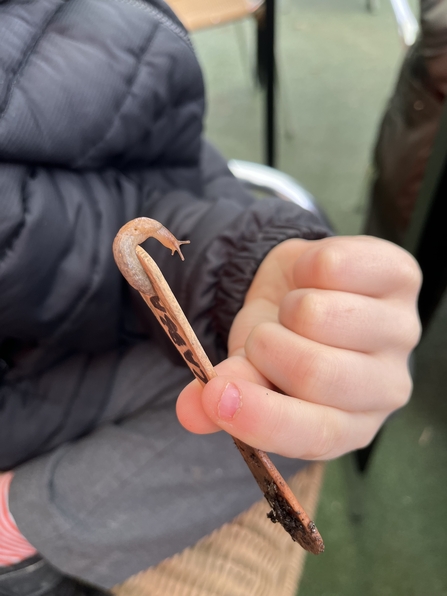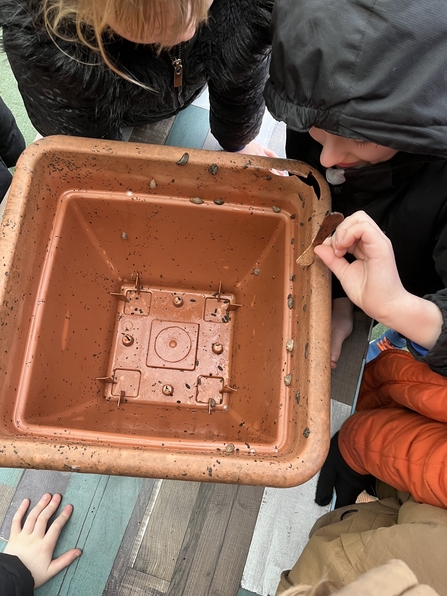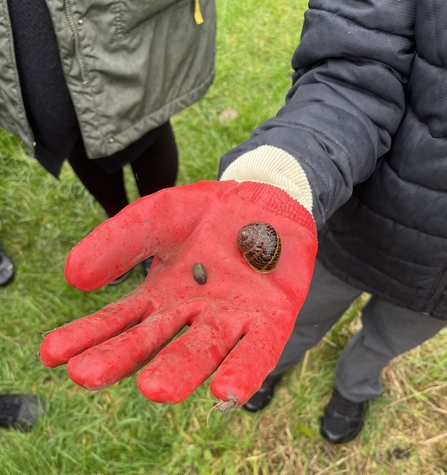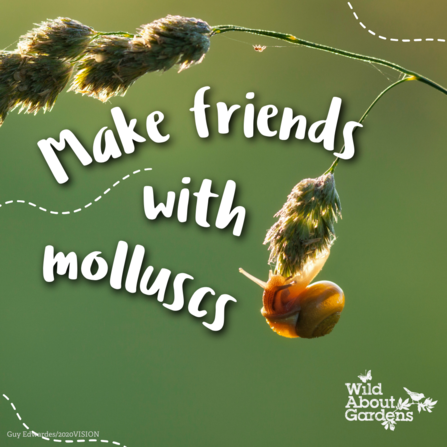Durham Wildlife Trust's Nextdoor Nature officer, Tom Parkin, recently led a session at Washington Mind’s Gardening Group with John F. Kennedy Primary School. The session was one of many that the school council representatives, aged 5-11 years, have undertaken with the Nextdoor Nature Project, gaining skills about wildlife gardening and identifying their own ways to connect with nature on the doorstep of their school grounds. This session focused on celebrating wonderful slugs and snails - mollusc invertebrates that regularly get a bad rep in our gardens, due to their fondness for our crops. However, their critically important role in our gardens must no longer go overlooked!
Make friends with molluscs

Much like other adored detritivores such as worms; slugs and snails are fantastic decomposers that recycle many nutrients and minerals to the soil over the winter months, breaking down organic material including leaf litter, dung and carrion. They are also a massively important part of the wider food-chain, being prey items for a number of native urban visitors, including hedgehogs, amphibians, birds and other invertebrates.
During the day, they are often easy to find in nooks and crannies, under plant pots and rocks in the garden where conditions are damp, and can be seen exploring spaces at night when they emerge to feed. Snails and slugs are gastropods, meaning they are single-footed, slow moving, single shelled molluscs. There are around 40 species of slug in the UK, and more than 120 snail species recognised in Britain. Find some more facts and how to ID some common species in this guide.

Although the JFK students and us at the wildlife trust love to see these gastropod slitherers in our green spaces, gardeners will often try to tackle slug and snail numbers around this time of year to prevent new growth seedlings and crops being eaten. However, the Wildlife Trusts have recently launched this year's ‘Wild About Gardens’ campaign and we have a plea to local gardeners not to exclude these organisms, asking people especially not to use any form of pesticide or chemical for extermination.

The best way to support a wildlife-friendly garden is to provide habitat for their natural predators. You could:
- Build a hedgehog home or log pile/ ensure you create a corridor for movement of hedgehogs through your garden.
- Provide a pond or water habitat to encourage toads and other amphibians into your space. This will also increase the biodiversity of pond snails in your garden.
- Build an insect hotel to provide habitat for ground beetles that feed on slugs.
- Plant fruiting shrubs and install bird boxes, so that birds like the song thrush can pick off these decomposers and keep the numbers to a sustainable balance.
- Leave a wild patch in your garden, using long grass to attract further predators.
This year’s Wild About Gardens campaign is all about making friends with molluscs.
Tom’s work is part of the Nextdoor Nature project – an initiative funded by The National Lottery Heritage Fund, which aims to bring Durham Wildlife Trust together with local communities to give people the skills, tools, and opportunities to take action for nature.


